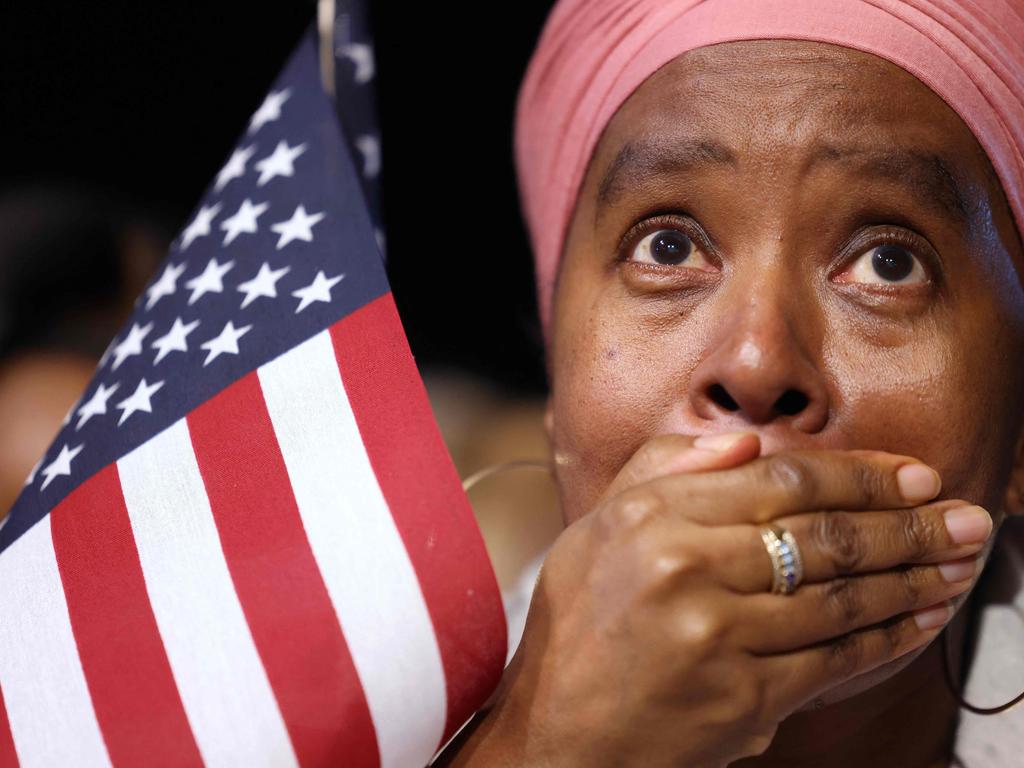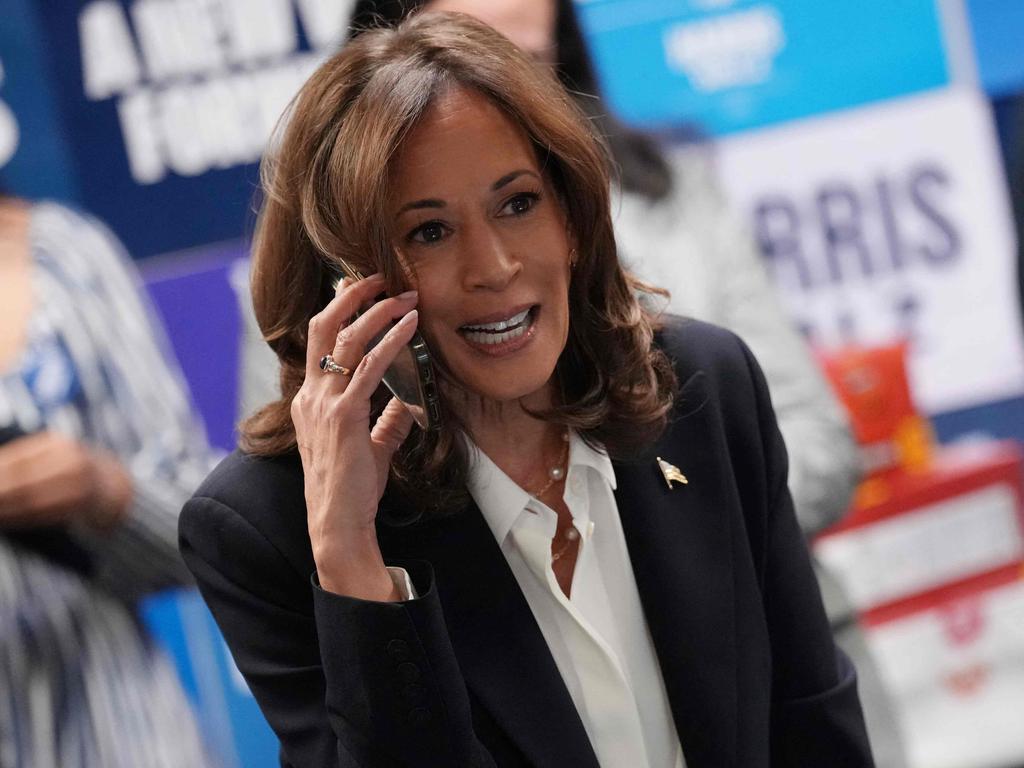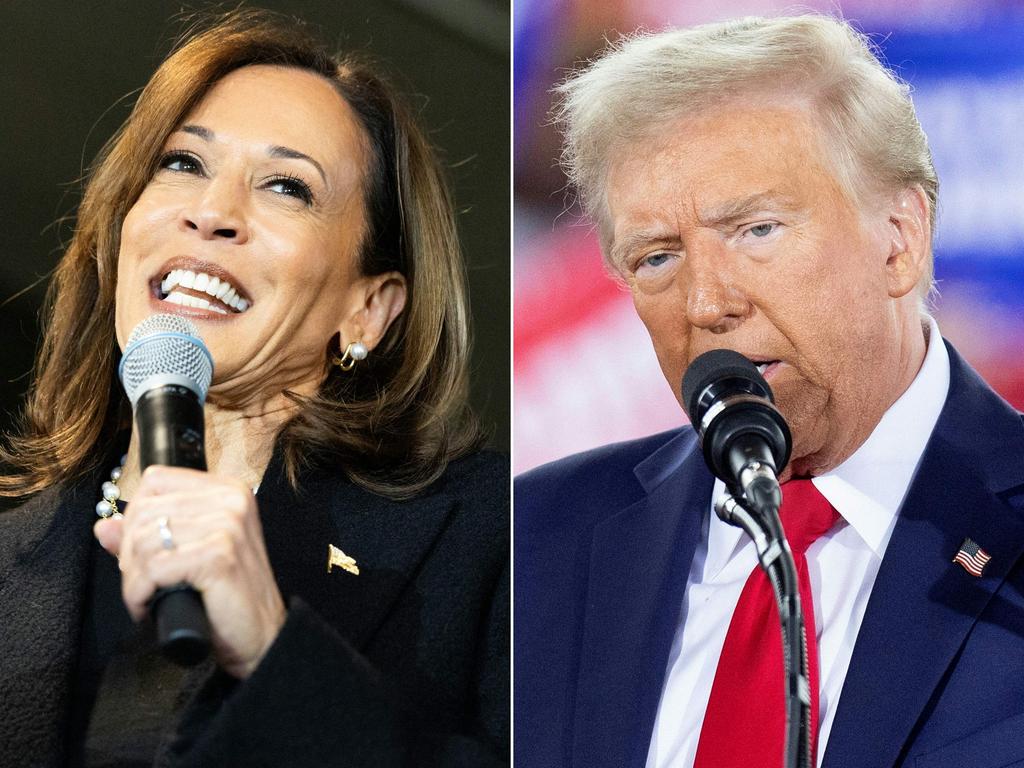The Hulk is back, and he won’t like our defence weakness


Sequels are usually worse than the first movie. We know the main character’s strengths and weaknesses. Plot lines are set, only the supporting cast is different.
We remember the hysterics from Trump’s first term, but the Hulk had calmer moments. Ultimately there was no weird agreement with North Korea’s “Little Rocket Man”; NATO got stronger; Iran was more firmly buttonholed; Israel was supported; the US did not abandon Afghanistan.
In 2016 Trump started a bromance with Xi Jinping. Last year Trump said Xi was “smart, brilliant, everything perfect. There’s nobody in Hollywood like this guy.”
Beyond the language Trump’s team crafted a solid national security policy on China – adopted by Joe Biden. Trump got closer to Japan and South Korea and did no harm to Australia, growing ANZUS co-operation. He helped Malcolm Turnbull by accepting boat arrival detainees.
Like the Hulk, Trump smashed some furniture, but he ended on the right side of most foreign policy judgment calls. (I’ll come back to Ukraine.)
Searching for comparisons through Marvel comic characters, it turns out that Kamala Harris’s only superpower was to be “Not Hulk”. Harris ran as an incumbent with no record, tied to Biden, with no time to build a platform beyond appealing to her party’s base and not-Trumpers.
We have the Democratic Party to thank for this election outcome. If Trump really were the Nazi they claimed, surely the Democrats would have found a better candidate than Harris – a truly dire option when the “break glass in case of emergency” moment came.

The US presidential race was a case study of when insurgency movements hijack mainstream political parties. Trump’s MAGA movement captured the Republicans aiming to smash the deep state. Trump played to that adoring audience, but on the evidence of his first term he is not out to break the system so much as just fool around with it for a while.
The Democrats tolerated Biden for too long while the party apparatus drifted well to the left of mainstream America. When Harris took over there was no sensible centrist agenda for her to run on.
Whoever is president, Australia has strong advantages in promoting our interests in Washington and with the American people.
Brand Australia is immensely popular – the place many Americans want to visit but never will. Australians are seen as sunny, gregarious optimists, open and frank – much like Americans imagine their best selves. As a somewhat shy pessimist I have benefited enormously from our perceived strengths in dealing with Americans.
In the defence world Australia is a genuinely valued ally, one prepared to put our soldiers into harm’s way supporting collective security. The intelligence relationship is remarkable and without parallel. We are absolute intellectual equals in analytical assessments, human and technical intelligence.
No country is better placed than Australia to press its interests with the next administration. We have excellent access to the White House, congress and the national security establishment – thanks in part to the work of our embassy and successive ambassadors, including Kevin Rudd. If we fail to capitalise on this advantage it will be the fault of the Albanese government, not the US administration or congress. Australia has the driving seat in the relationship.
But problems are brewing in defence and security ties. They were hinted at on Tuesday in Canberra by outgoing US ambassador Caroline Kennedy. Speaking at a Submarine Institute conference she stressed the “need for urgency” to get ready for the nuclear-powered submarines.
Kennedy said we needed to “cut red tape”, establish an AUKUS visa to support industry workforce mobility and to get Australian industry more energised on AUKUS projects.
It was another failing of the Biden team that these problems were papered over in the interests of fraternity between two centre-left parties. Now, Anthony Albanese needs to listen.
We are too slow on AUKUS and underperforming on defence more generally. The Prime Minister should ask why the first order of business he takes to the new president is to explain why Australia dumped a $7bn contract with America’s Lockheed Martin for secure defence satellite communications. Labor announced it in triumph in April last year as “Australia’s first sovereign-controlled satellite communication system”. Now we are supposed to believe that technology has developed so fast that other solutions must be considered.
The satellites are the casualty of cuts in Defence driven by the government’s refusal to lift the budget. Nuclear submarines and missiles have blown out costs.
Who would want to be in Albanese’s shoes telling Trump we are making the Australian Defence Force weaker in the 2020s to have a marginally more capable military in the late ’30s?
The ADF has fewer surface ships and combat aircraft, a lone working submarine, fewer vehicles. It has abandoned helicopters, scuppered mine-hunting ships and has a “workforce crisis”. The only growth is the explosion in numbers of generals and senior public servants.
Canberra is reversing the Australian security ambition to punch above our weight. Gone is the idea that we are a consequential G-20 power with global interests and ideas. It has been replaced with a blinkered focus on our immediate region, a boost to “Indigenous public diplomacy” and a spineless obsession with our own managed decline.
This is what our “nuanced” diplomacy delivers. So much for foreign affairs “tradecraft”.
Alliance fraternity goes only so far to cover the Australian failure to burden-share. Forget AUKUS in the 2040s. Trump will want to know what we are doing about security right now. The picture is bleak. Don’t make Hulk angry!
A footnote on Ukraine: Trump’s fantasy about ending the war overnight is nonsense. But if we are serious about collective security, we need to step our support for Kyiv along with the Europeans. We can’t make this just America’s problem.
We should stop hand-wringing about Trump and show why we are a vital American partner, as we have done with every president since FDR.







During the 2016 presidential election I wrote that the United States desperately needed Captain America but instead got the Incredible Hulk. Now the Hulk is back and even stronger. That’s because he – Donald Trump that is – won both houses of congress.